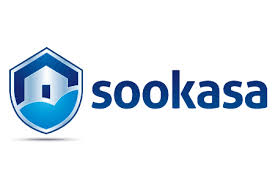Happy Tuesday, everyone!
—–
Top News in the A.M.
Google is today announcing a Glass for Work program to provide additional tools for business users, like tech support, and to explore how to sell Glass to more of them.
—–
MobileIron Founder Tae Hea Nahm on the Korea Connection
Tae Hea Nahm, a founding managing director of the early-stage firm Storm Ventures, was born in Seoul, Korea, and he still spends at least one week in the country every quarter. He goes to attend startup board meetings. He visits with Samsung and with some of Storm’s LPs, including Korea Telecom. Nahm, who has also cofounded four mobile companies — including MobileIron, which filed to go public yesterday — also seeks out new ideas on these trips. We talked yesterday about what he sees.
You’re in Korea more often than most U.S VCs, I’d imagine.
Well, I’m Korean, so visiting is relatively easy for me. It also helps me with my mobile investments in the U.S. People who invest in digital advertising look at startups in Silicon ValIey and New York; I feel that Silicon Valley and Korea are naturally synergistic in the same way when your primary [focus] is in on mobile.
Where do you look for trends?
I like to ride the subway in Seoul to get an idea of what people do. In New York, for example, most people are listening to music on their mobile devices or maybe reading a Kindle or something because connectivity on the subway is very poor. In Seoul, about a quarter of people on the subway are streaming a drama or sports show on their iPads or Galaxy Notes because they have the Internet infrastructure to do it.
Mobile video is really going to take off here, too. It’s why a huge investment is being made by Samsung and Apple to create higher resolution displays. It’s why, on the other side, content video providers like Amazon and YouTube and Netflix expect more people to watch their content over mobile devices. It’s also why one company we started in Korea that optimizes your mobile video session across multiple wireless networks is doing very well.
Other than gaming, where else has Korea gotten a jump on the U.S.?
An example I saw and didn’t take advantage of are credit card readers. Many years ago, a taxi driver who picked me up basically scanned and processed my credit card with a cellular reader that was like a bigger form of Square. Kakao, the messaging platform, also took off must faster in Korea than messaging took off here in the U.S. In that case, it was mostly driven by cost. In the U.S., the savings of using free messaging here is less compelling than in Europe or Korea. But it also just fits in with human nature.
How hard is it to separate out what’s an early indicator of a big trend, versus something that might be popular specifically because of the culture?
It can be difficult. I email with my wife a lot, but in Korea, a husband and wife would rarely email each other; dating back at least 10 years, they’d text each other because email is considered slow and formal whereas texting is faster and spontaneous. There, I felt like texting was more cultural, and my initial assumption was incorrect.
Are so-called ephemeral apps interesting to the Korean market?
Yes. There’s a company in Korea, Between, that allows you basically to just create a private social network between two individuals, and either individual can terminate the whole conversation and all the content stored. It’s like a private communication locker, versus a Snapchat, where it’s just a private message.
Would you try to bring it to the U.S or incubate something similar? You’ve incubated several companies here in the past.
I’ve started companies like Airespace [acquired by Cisco for $450 million in 2005] where I was the founding CEO and hired the first 24 employees, and MobileIron, where I hired the first three founders. At the same time, we don’t want the reputation of ripping off entrepreneurs’ ideas, so we don’t just form clones.
Also, the problem in [recreating an idea] is whether the founders you hire will really be passionate about the idea. Passion for their idea is what makes entrepreneurs so special. If I have the belief and desire and the executive team doesn’t have it, it doesn’t work.
There must also be major differences in the way things are marketed. What are some of the biggest ways the markets in Korea and the U.S. continue to differ?
Korea is a very small homogenous country, so if five people believe something, everyone will believe it, whereas because the U.S. is so big and diverse that word of mouth is much less powerful. Westeners also like things that are more realistic; Asians like things that are more cartoonish.
And Koreans like tutorials; they like to go through manuals to teach themselves how to become power users. Americans hate them. They like to push buttons and get results. I don’t know if Apple brainwashed them or understood them, but American users don’t want to read anything.
New Fundings
Adaptive Biotechnologies, a five-year-old, Seattle-based company focused on immunosequencing research and diagnostics, has raised $105 million in fresh capital from Viking Global Investors. The Greenwich, Conn.-based hedge fund contributed $5 million to Adaptive’s Series C round, closing it out; it also invested $100 million in a newly created Series D round intended to enable to company to expand globally.
Alios BioPharma, a 7.5-year-old, South San Francisco-based company at work on a treatment for respiratory syncytial virus, a top cause of brochiolitis, has raised $41 million in funding led by a new, undisclosed investor . Earlier investors Novo Ventures, SR One, Roche Venture Fund and Novartis Ventures also participated in the round, which brings Alios’s total funding to $73 million, according to Crunchbase.
Beamr, a five-year-old, Tel Aviv-based video optimization startup, has raised $9.5 million led by Marker LLC and Innovation Endeavors. The company was formerly known as ICVT.
Carrot.mx, a two-year-old, Mexico City-based car-sharing service, has raised about $2 million in Series B round led by Venture Partners, reports TechCrunch. Auria Capital and earlier investor Mexico Ventures also participated in the round, which brings Carrot’s total funding to $3.5 million.
Cerora, a 2.5-year-old, Bethlehem, Pa.-based company developing a diagnostic device that aims to diagnose concussions and other head injuries, has raised an undisclosed amount of seed financing, according to the company. It plans to debut its first product later this month at the Annual Meeting of the American Academy of Neurology in Philadelphia.
Closely, a 3.5-year-old, Denver-based company whose software helps small business monitor the social and mobile behavior of their customers, has raised $3 million in Series A funding led by Grotech Ventures. Steadfast Venture Capital and CNF Investments participated
Datalogix, a five-year-old, Denver-based company that sells offline purchase data to giant publishers, has raised a “significant” amount of fresh capital from billionaire tech investor Jim Breyer, who also joined the company’s board, reports the WSJ. (Others of his personal investments include Etsy, Spotify and the now-public revenue management software company Model N.) Datalogix, formed from an older company and essentially restarted by General Catalyst Partners in 2009, had previously raised $35 million, including from General Catalyst and Institutional Venture Partners.
EatStreet, a 3.5-year-old, Madison, Wi.-based online and mobile food ordering service, has raised $6 million in Series B funding from Cornerstone Opportunity Partners, Independence Equity, Great Oaks Venture Capital, CSA Partners, Silicon Valley Bank, and other angels. The company has raised a little more than $8 million to date, shows Crunchbase.
Hortau, a 14-year-old, Quebec-based company that specializes in wireless and Web-based irrigation management, including through sensors that it installs at various depths in the soil, has raised $3.2 million from earlier investor Avrio Capital, according to Dow Jones. The company has raised $6.5 million to date, shows Crunchbase.
Ioxus, a 6.5-year-old, Oneonta, N.Y.-based maker of ultracapacitor technology for use in transportation, industrial and energy applications, has raised $21 miillion in Series C funding co-led by IFC, a member of the World Bank Group that’s based in Beijing, and earlier investor the Westly Group. Ioxus has raised roughly $70 million to date, shows Crunchbase.
Kenshoo, a 7.5-year-old, Tel Aviv-based digital marketing technology company, has raised $20 million in new financing led by Bain Capital Ventures. A WSJ source says the latest round set the company’s valuation at between $400 million and $500 million; this source says the company is profitable and earning annual revenue of between $50 million and $100 million. Kenshoo has raised roughly $50 million altogether, shows Crunchbase, including from Tenaya Capital, which led the company’s $12 million Series E round in late 2012.
Neura, a year-old, Sunnyvale, Ca.-based company that facilitates communications between smart devices in the home, has raised $2 million in funding from Greenhouse Capital Partners, which was joined by SingTel Innov8 Ventures, Pitango Venture Capital, Triple Point Ventures and angel investors Ben Narasin and Isaac Applbaum. Neura is a graduate of Silicon Valley based accelerator UpWest Labs.
Quad Learning, a two-year-old, Washington, D.C.-based startup that’s creating new pathways for individuals to earn their bachelor’s degree, has raised $10 million in Series B funding from a mix of investors that includes
MentorTech Ventures of Philadelphia and student loan guarantor ECMC. Earlier investors SWaN & Legend Venture Partners, New Enterprise Associates and CNF Investments also participated in the round. The company was founded by Phil Bronner, a former general partner with Novak Biddle Venture Partners in Bethesda, Md.
Sequent Medical, a 6.5-year-old, Aliso Viejo, Ca.-based medical device company focused on innovating neuromuscular technologies, has raised $20 million in Series D funding led by existing investor Delphi Ventures. The company’s other, earlier investors — Domain Associates, US Venture Partners, and Versant Ventures — also participated in the round.
Vengo Labs, a two-year-old, New York-based company that makes compact, interactive, digital kiosks that run point-of-purchase digital campaigns for companies like Uber, has raised $2 million in Series A funding from Coinstar Founder Jens Molbak, venture capitalist Brad Feld, QueensBridge Venture Partners, Joanne Wilson, Kensington Capital,Vegas TechFund, Scout Capital and Vector Media. Roughly a third of the financing — $720,000 — came through SeedInvest, an equity-based funding platform for accredited investors.
Wattpad, a seven-year-old, Toronto-based collaborative-writing community that helps connect new authors with fans and other writers, has raised $46 million in new funding led by OMERS Ventures. Other participants in the round included August Capital and earlier backers Khosla Ventures,Union Square Ventures and Yahoo co-founder Jerry Yang. GigaOm has much more here.
Wellframe, a three-year-old, Boston-based mobile platform for care management that promises to better engage patients in personalized care plans, has raised $1.5 million in seed funding, including from Athenahealth CEO Jonathan Bush and DFJ cofounder Tim Draper.
—–
New Funds
BVCF, a Shanghai-based growth capital-focused private equity fund specializing in the life sciences industry, has completed a final close of its third fund, raising a total of $200 million, according to China Money Network.
Psilos Group, the New York-based health-care investment firm, continues to raised its fourth fund, according to SEC filings. The firm’s fourth, main fund has collected $41 million, per the filing, with a target of $400 million. The filing shows the firm is using Emerald Point Capital of New York to help in its fundraising efforts. Psilos’s previous funds were a $300 million fund closed in 2006, a $140 million fund closed in 2001, and a $120 million fund closed in 1999.
—–
IPOs
MobileIron, a 6.5-year-old, Mountain View, Ca.-based company that enables enterprises to manage mobile applications, content and devices for remote workforces has filed for an IPO. The number of shares that will be sold as well as the stock’s pricing terms have yet to be set. The company, which has raised roughly $145 million from investors over the years, is majority owned by a four venture firms, including Storm Ventures, which owns 20.2 percent of the company; Norwest Venture Partners, which owns 19.5 percent; Sequoia Capital, which owns 16.9 percent; andFoundation Capital, which owns 8.5 percent.
Tuniu, a 7.5-year-old, Nanjing, China-based company that produces organized and self-guided tours, has filed to go public. The company’s principal shareholders include DCM, which owns 23.5 percent of the company; Esta Investments, which owns 16.7 percent; Gobi Partners, which owns 16.4; Sequoia Capital, which owns 13.2 percent; Dragon Rabbit Capital, which owns 9.6 percent; Verne Capital, which owns 6.4 percent; and RS Empowerment, which owns a 5.3 percent stake.
Yodle, a nine-year-old, New York-based online advertising service for small businesses, is planning an IPO later this year, according to people familiar with the matter. The IPO could raise around $100 million, though the target hasn’t yet been finalized. Yodle has raised $40 million over the years, according to Crunchbase; its backers include Bessemer Venture Partners, DFJ, and Jafco Ventures.
—–
Exits
8thBridge, a 5.5-year-old, Minneapolis, Mn.-based social commerce platform for retailers, has been acquired by Fluid, a still-private, 14-year-old, San Francisco-based company that creates e-commerce sites. The terms of the sale weren’t disclosed. 8thBridge had raised $15.6 million from Trident Capital and Split Rock Partners.
Cover, a months-old, San Francisco-based Android lock-screen app that lets users choose what to place on their home screen, has been acquired by Twitter. The announcement was made on Cover’s blog and terms of the deal weren’t disclosed. Investor-operator Semil Shah has some interesting thoughts on the deal here.
Shape Pharmaceuticals, a 5.5-year-old, Cambridge, Ma.-based company that’s been developing a topical histone deacetylase inhibitor, has been acquired by TetraLogic Pharmaceuticals for $13 million in cash, and future payments tied to development and commercialization milestones and eventually product sales. Shape had raised $3 million in funding, including from HealthCare Ventures in Cambridge.
—–
People
Chris Dixon, a partner at Andreessen Horowitz, warns that mobile apps are killing the free Web, making it impossible to compete with Google and Apple.
—–
Job Listings
Decheng Capital, a healthcare and life sciences venture firm in Shanghai City, China, is looking to hire an associate. Fluency in English and Mandarin is a must (as you could probably guess).
—–
Data
Senior analyst Antoine Nivard of iNovia Capital examines the tech investing landscape in Canada. Among his findings: Canada’s startups have never had as much angel and venture capital funding available than they have today. The country sees more deals of increasingly larger size on average. And most of the country’s tech growth owes to Internet companies, versus either mobile or hardware companies, which “remain tiny and slow-growing categories.”
—–
Essential Reads
It had almost $1 billion in funding and ambitions to replace petroleum-based cars with a network of cheap electric models. Instead, Better Place went bankrupt. Fast Company tells its story.
Uber is testing a courier service in Manhattan, the next step in its long-state goal of become an advanced-delivery service.
Waze, the Israel-headquartered social mapping startup acquired by Google for $1.15 billion last year, now hints that it was pressured by regional investors to both think small and sell fast.
San Francisco’s ban on short-term rentals is turning out to have teeth,reports the San Francisco Chronicle. People who rent out space on Airbnb, VRBO and other markets for temporary housing are facing fines by the City Planning Department and eviction on the grounds of illegally operating hotels.
—–
Detours
Quitting apps in iOS can actually worsen battery life.
The ultimate camping van.
A dad creates impressive edible art inside his daughter’s lunch boxes.
—–
Retail Therapy
The Boy’s Doodle Book.” For young sons, nephews, and the boss’s kindergartner.
A “Game of Thrones” infographic that charts the characters’ various affairs across the first three seasons.
Scratch and sniff jeans. They are a real product.
——-
To sign up for StrictlyVC, click here. To advertise, click here.







